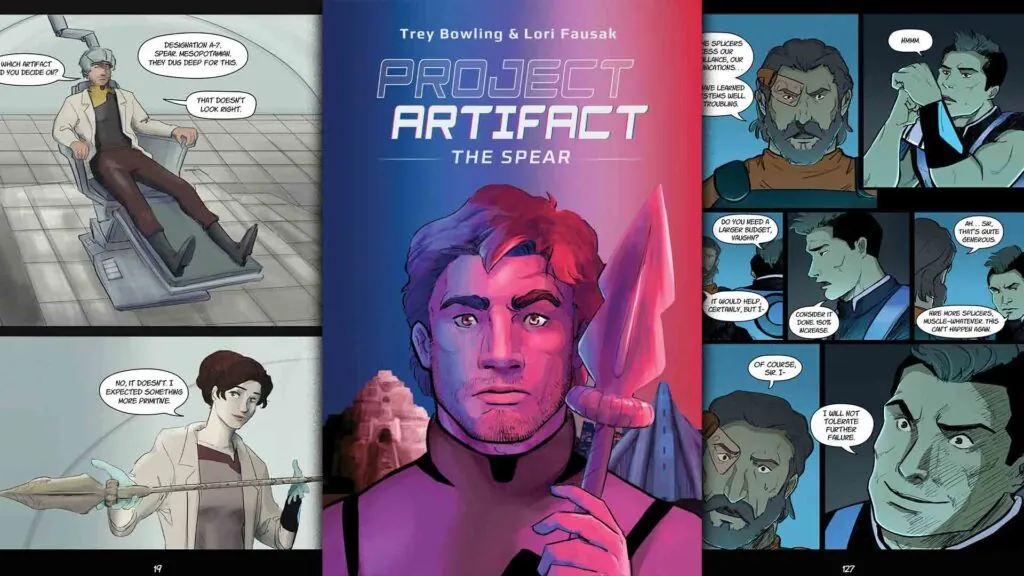Like most high school students, I didn’t really know how to answer the “what are you going to do after school?” question. The world was so big and my experience was miniscule. How was I supposed to commit to something when I had no idea how it would go? Geology sounded interesting, but I knew it wasn’t a good idea to spend weeks in the mountains and away from church and family. And my teachers’ feedback suggested that I may be better suited for something that involved a classroom or office. I decided to aim for a teaching degree, in part because my wiser and older brother blazed that trail ahead of me.
College or university had some appeal, but I was more interested in getting a job in the “real world.” Perhaps that was in part because I had to pay for my studies out-of-pocket and always had a hard time remembering what I learned. So, I would never have guessed the post-secondary path and resulting careers that the LORD had planned for me since then. It has straddled 25 years and eight different types of institutions so far:
- Northwest Community College
- University College of the Fraser Valley
- BC Institute of Technology
- Laurentian Leadership Centre
- Trinity Western University
- University of Lethbridge
- Crest Leadership Centre
- Colson Fellows
Although I didn’t see it at the time, in hindsight I can see how God was directing each step and weaving it to accomplish His purpose in my life. The careers that resulted didn’t even exist when I graduated from school.
Lessons learned
If I could sit down with the teen or young adult version of myself, or if my own teenaged children were willing to ask, I would offer the following lessons based on this journey.
1. “Seek first His kingdom”
Our lives aren’t first and foremost about us. God put us here, and wants us to follow Him where He leads. So do your best to filter out motivations that are self-interested and people-pleasing. And listen carefully when you see a need in the world that aligns with how God made you. Many of these callings, like being a mom or a carpenter, don’t require post-secondary studies.
2. Trust God to guide… and provide
Yes, jumping into a particular program or stream can be daunting and comes with a cost in both time and money. But, assuming that you made the decision wisely, you can trust in the LORD to provide.
That also means not closing doors that God hasn’t closed for you. I would never have expected that I would have the financial means to get a degree from a private university, or do grad studies. But God provided through many means, from a generous Christian foundation, to a scholarship from the government. Whether we devote eight years to becoming a minister, or work for eight years pouring concrete or fixing vehicles, either way we are working hard. Life is hard. Don’t look for shortcuts. God will walk with us every step of the way.
3. Start walking
Instead of being overwhelmed by all the options, just start taking steps. As Kevin DeYoung says so well in his book Just Do Something, we don’t have to wait for mysterious signs from above or crack the code to a secret plan for our life that God expects us to find. If we are seeking first His kingdom, we can pick from many wonderful options. Don’t expect to know what is a good fit without experience. There is nothing wrong with pivoting along the way.
4. You don’t have to plan too far ahead
We may want to have a satisfying answer for those who ask What are you going to do with your life? But there are just so many more options than we can ever foresee from where we are standing at 18. If we are too fixated on “our plan” we may miss opportunities where we can be even more effective in God’s kingdom. Keep your eyes and options open.
While completing a very good semester studying marketing management and entrepreneurship at a technical institute, I surprised everyone (including myself) by leaving the program to seize an opportunity to study at the Laurentian Leadership Centre in Ottawa, even though it hadn’t been anywhere on my horizon. That switch changed the trajectory of my whole career from marketing to political science. Yet I can now also see how God used those marketing studies to assist with building ARPA Canada years later. None of it was a waste.
5. Work experience can be the best education
Although I’m generally grateful for all my studies, my jobs have taught me as much, or more, than I learned in school. And jobs can be much more rewarding, as you get to apply your work to the real world, rather than put a lot of time into something that never goes beyond your professor. Be as intentional with what jobs to pursue as which programs to apply for.
Over the last fifteen years I have hired many people. Some of the best ones had no, or limited, post-secondary studies. They were able to learn on the job. What mattered far more was their character and work ethic. In other words, you may not even need the degree or diploma that were expected in the past.
6. Study within your means
As much as possible, avoid student debt. When you are done your studies you likely will be prioritizing being married and having a family. “The borrower is a slave to the lender” (Prov. 22:7), especially at a time in your life when there will likely be a lot of pressure and expenses already. Unless you are very confident that you can pay off your student debt within a couple of years of graduating, it may be best to pick a different track.
7. Keep your eyes wide open
Satan is the author of lies, and he seems to thrive at post-secondary institutions. I experienced this head-on in my first year, when my “Christian” professor at a community college attacked anyone who wasn’t fully committed to evolution.
But I also experienced it in more subtle ways at Trinity Western University, where many of my philosophy classes simply weren’t taught from a biblical worldview. Instead, most involved confused professors teaching confused students about secular ideas, with little or no biblical basis.
If you are going to study at a private institution, make sure that the professors are fully committed to God’s Word, including things like creation and God’s design for sexuality. Don’t trust the brochures or the smiling person giving you a tour of campus. Talk with people who study there and ask the hard questions. For example, ask them how God’s Word is used in the classroom. Is it opened and examined? Does the professor demonstrate humility under God’s Word? Is there a willingness to apply Scripture to sensitive topics, without compromise?
Otherwise, why pay big bucks for an education that isn’t going to help you think and live faithfully?
8. Don’t just jump through the hoops
I was so keen to finish my program as quickly as possible that I didn’t take the time to treasure what I was being taught nearly as much as I should have. Later in life, people often wish they could have the time to study at a college or university again (or for the first time). Don’t squander the gift you have been given by treating it as a means to an end. Take the time to really listen, think, and engage.
The goal isn’t getting studying over with. Rather, the goal is to get an education. And if the content isn’t worth learning, that should make you question whether you ought to be there at all. There will always be some garbage being taught in secular institutions that require you to hold your nose and get through. But if that is a big part of your program, it is probably best to study something else or somewhere else.
9. Education really is life-long
Although the years out of high school are often the only window most of us have to devote time to post-secondary studies, in more recent decades so many new opportunities have been made possible that allow people of all ages and all positions in life to get a great education, at very little or even no cost. Some of my favorite studies have been the online programs that I have done in the past four years, like the Colson Fellows program (ColsonFellows.org).
The wonderful thing about these opportunities is that they are accessible to most people, regardless of your experience, your financial situation, or whether you even finished high school. And if you aren’t able to go through a program, simply reading good books and listening to good podcasts/lectures may be just as valuable.
10. It isn’t necessarily about the degree, or the cost
Most of my certificates, diplomas, and degrees are hidden. They really don’t matter. The more important take-aways from the studies are being able to focus, discern, analyze, and write, among other things. And these skills are all the more necessary in a world where concentration levels keep diminishing and people have trouble writing more than a few words in a text message. LOL LMK TTYL. Although studies may not result in a great return on investment for you personally, we need to think about God’s kingdom as a whole. If everyone pursues the trades, what impact will that have around the consistory table, or when it is time to send elders to synod?
Now would my teenaged version of myself have listened? Well, sometimes we need to experience life to be open to learning. And I still have a long way to go.












